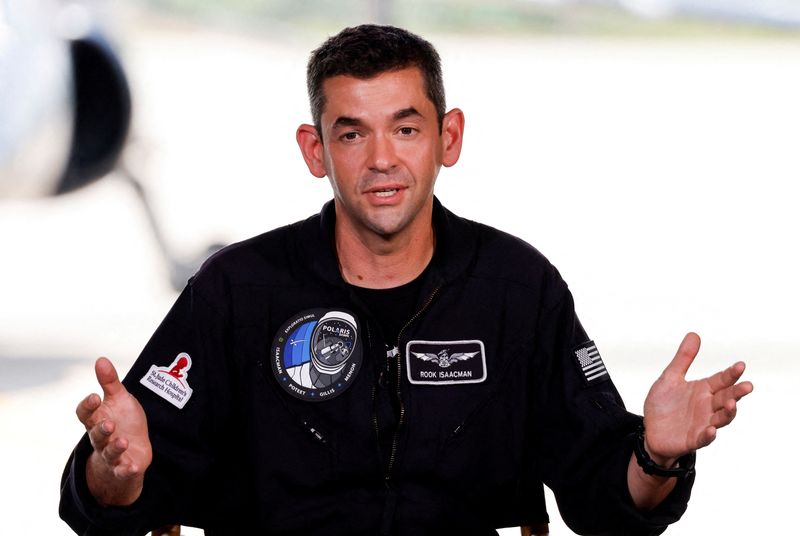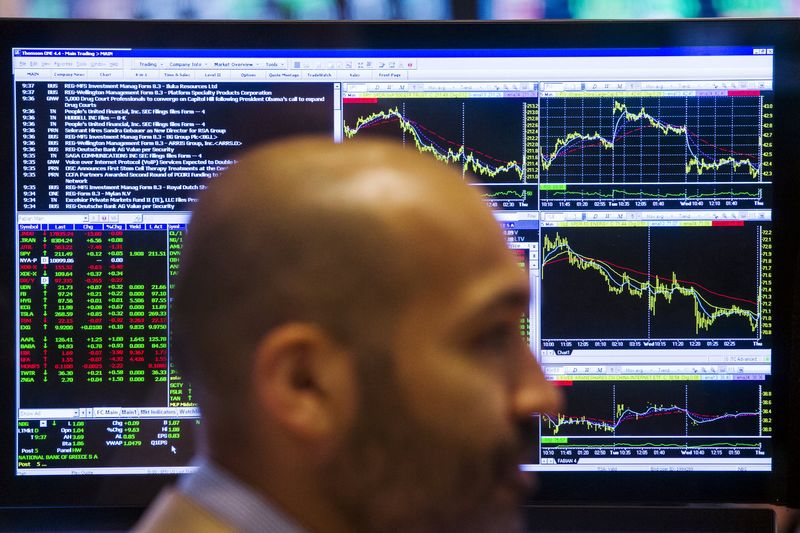By Joey Roulette
WASHINGTON (Reuters) – U.S. President-elect Donald Trump’s choice to helm NASA, a private astronaut and close ally of Elon Musk’s SpaceX, is a central figure of a fast-paced, commercially-oriented side of the space industry that deals with unknown political challenges would face an administrator.
Jared Isaacman, the CEO of payment processing company Shift4 Payments, has made historic visits to space on two ambitious SpaceX missions, including the first-ever privately funded spacewalk in September.
In accepting Trump’s decision, he envisioned a “booming space economy” and promised to “usher in an era in which humanity becomes a true space-faring civilization.”
But the path to pursuing a faster, more privatized agenda for human spaceflight is expected to involve a delicate political tango of trimming costly, entrenched programs and pursuing lawmakers’ efforts to cut the space agency’s $25 billion budget. increase.
“He’s definitely going to push NASA, but he’s going to do it in a positive way,” said Garrett Reisman, a retired NASA astronaut who has been a consultant to SpaceX.
Musk had recommended that Trump pick Isaacman and has since told employees he sees the tech billionaire as someone who can get things done at NASA, according to two people familiar with the discussions.
“He is a man of high ability and integrity,” Musk said of Isaacman on his X platform on Wednesday.
Targets at NASA for Trump and Musk’s cost-cutting agenda that Isaacman is expected to target include the overbudget $24 billion Space Launch System rocket and the under-development Gateway space station ready to enter orbit to reach the moon, according to people familiar with the transition team’s space plans.
Other projects expected to come under scrutiny include the agency’s goal to return soil samples from Mars — another top NASA priority in addition to the Artemis moon program.
While the cuts to expensive NASA programs are likely to face pushback from lawmakers, they could provide a boost to companies like SpaceX, which have embraced cheaper and faster ways to get into space and offer rockets to the government as a private service.
That approach is in stark contrast to the space agency’s traditional method of contracting companies like Boeing (NYSE:). Lockheed Martin (NYSE:) builds spacecraft that the agency owns, controls and fully finances.
Trump’s first NASA administrator, former Oklahoma Congressman Jim Bridenstine, proved adept at dealing with these political challenges. He was instrumental in obtaining budget increases for NASA’s flagship human space exploration program and increasing its reliance on private companies.
Bridenstine pushed for Isaacman’s Senate confirmation in a statement Wednesday night, saying his “vision to push boundaries, combined with his proven track record of success in private industry, positions him as an ideal candidate to lead NASA into a bold new era of exploration and discovery. .”
Since Trump’s first term, NASA has focused heavily on returning humans to the moon. But the Artemis program, which uses NASA’s powerful Space Launch System (SLS) rocket to send astronauts to space and Musk’s Starship rocket to land them on the moon, has faced budget shortfalls and delays, hampering the planned landing moves back to 2027.
NASA’s reliance on SpaceX’s Crew Dragon capsule, which provides astronaut rides to the International Space Station at a lower price than previous options, has bolstered the agency’s commercial cost-saving strategy. It has also fueled an industry culture that threatens the future of NASA’s older and much more expensive SLS rocket, built primarily by Boeing and Northrop Grumman (NYSE:) with a national workforce of 28,000 employees.
“If Chairman Isaacman is confirmed, he will face challenges as he leads NASA into the future,” said Allen Cutler, CEO of the industry group Coalition for Deep Space Exploration, of which Boeing and Lockheed Martin are members.
“Budget constraints, workforce and infrastructure needs will all play a role in shaping NASA’s future,” Cutler added.
NASA’s current administrator, Bill Nelson, said he spoke with Isaacman to congratulate his preliminary nomination and that he feels “basically optimistic” about NASA’s future under Trump.

“I think the relationship between Elon Musk and the president-elect will be an asset in ensuring that the funding for NASA is in place, so I see that as a positive,” Nelson told a news conference Thursday.
(This story has been corrected to correct the attribution of quotes to Allen Cutler, CEO of the Coalition for Deep Space Exploration, and not to coalition spokesman Dan Stohr, in paragraphs 16 and 17.)


